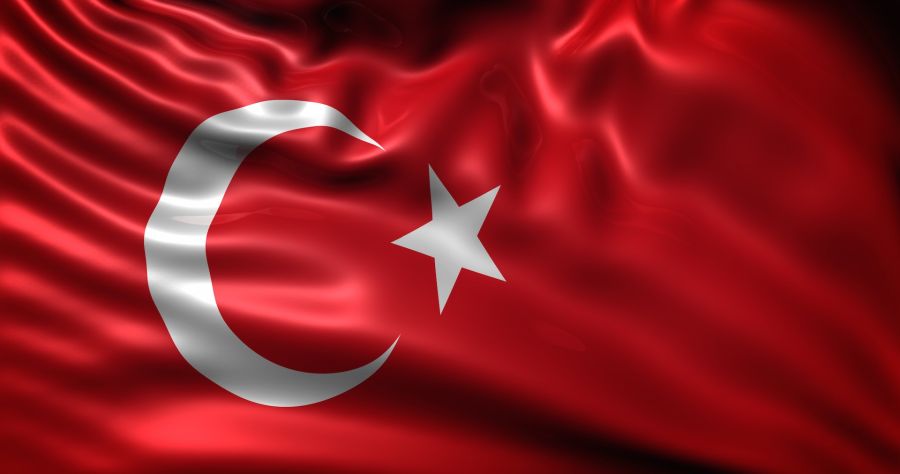What happens in Turkey

When interpreting Turkey's foreign policy choices, the close links between the official Turkish state and the deep state are forgotten
Let's start as usual with the most recent news events.
Firstly, by the end of August, Turkey will continue its drilling operations in the Eastern Mediterranean despite the recent political and diplomatic tensions with Greece in order to implement new energy exploration activities. In this regard, Erdogan himself stressed that Turkey will in no way be able to consent to initiatives that try to block the country on its shores, ignoring the vast Turkish territory of 780,000 square meters.
Second, the European Commission's Foreign Affairs spokesman Peter Stano stressed that the growing tensions between Greece and Turkey in the eastern Mediterranean are "extremely worrying".
Well, for this very reason the complex question must be resolved through dialogue.
THE MOVES OF TURKEY
Beyond the European diplomatic approach, Turkish regional power policy has been characterized by coherent and linear choices.
On November 27, 2019, Turkey signed an agreement with the Libyan Government of National Accord (GNA), arousing the indignation of Greece, Cyprus and Egypt, which accused Turkish President Erdogan of violating their economic rights in the Mediterranean.
On 8 August, Erdogan announced that it had resumed energy exploration activities in the eastern Mediterranean and, two days later, the seismic research vessel Oruc Reis left the port of Antalya to begin its operations off the Greek island of Kastellori which will go on until 23 August.
Of course, the long-term goal is to achieve energy independence.
In the light of both these recent developments and what Massolo appropriately observed , on the one hand the European irrelevance – at present – and the impotence of NATO are confirmed. But above all the Turkish modus operandi fully confirms what the writer has written for over a year on these pages .
THE LINKS BETWEEN STATE AND DEEP STATE IN TURKEY
One last consideration. Often – when interpreting Turkish foreign policy choices – the close ties existing between the official Turkish state and the Turkish deep state are forgotten. I think it is appropriate to give the reader a brief briefing on this issue.
In fact, Turkey, like most European countries, has a real criminal organization called mafya – as underlined by Ryan Gingeras, professor at the National Security Affairs of the Naval Postgraduate School in his essay “ Heroin, Organized Crime, and the Making of Modern Turkey "(New York 2014, Oxford University Press) – which is mainly based on clan or territorial ties and which collaborates synergistically with political institutions and especially with economic ones in a way that mirrors the Italian mafia or the ' Calabrian Ndrangheta. The Turkish mafia – already present during the Second World War – was involved in the cultivation of opium, the production and smuggling of heroin. For the export of drugs to the United States, she collaborated with the Corsican mafia which allowed her to reach the United States through Marseille.
Of particular importance are the relations between the Turkish mafia and political movements of the right as well as of the left, such as the neo-fascist movement called Nationalist Movement (Mhp) or the extreme left as in the case of the Eastern revolutionary cultural associations (Devrimci Doğu Kültür Dernekleri, Ddkd ).
Experts recall the case of Behçet «Beco» Cantürk, who from the 1950s to the 1990s was one of the leading exponents of the Turkish mafia, also recognized at European level.
In 1995, former head of Turkish security services Mehmet Ağar collaborated with one of the most famous Turkish mafia, Hüseyin Baybas – considered a sort of European Pablo Escobar – to fight the PKK, whose wealth, valued at around 45 billion dollars, it also built on drug trafficking as well as money laundering through the tourism sector.
Analysts also recall Mehmet Nabi İnciler known as İnci Baba, a powerful exponent of the Turkish mafia, and Süleyman Demirel, Turkish premier and former president of the Republic who in the seventies not only publicly declared his support for İnci Baba, but invited him to official receptions by making himself accompany on several trips abroad, including one to the United States. On that occasion İnci Baba went to Chicago to even pay homage to the tomb of Al Capone.
Ultimately, the investigation by the American university professor shows how even in Turkey – as on the other hand China, Russia, Italy and the United States – there is not an occasional intertwining but a structural interweaving between security environments, some exponents of organized and political crime. In short, a real parallel state contiguous to the institutional one.
This is a machine translation from Italian language of a post published on Start Magazine at the URL https://www.startmag.it/mondo/turchia-mafia-politica-intreccio/ on Sun, 16 Aug 2020 05:33:54 +0000.
